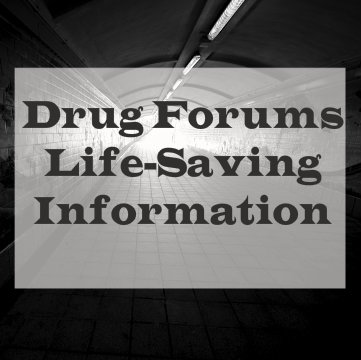Drug Abuse Forums Provide Potentially Life-Saving Education To Teens And Parents
Even in our connected and technological age, stigma persists about drug addiction. Parents may not want to believe that their child could become a drug addict, and there is still much misunderstanding about things such as prescription drug abuse and its risks. Education is a vital approach for dealing with this stigma and these prevalent misconceptions, and a recent forum held by the Council on Addiction Prevention and Education (CAPE) and the Wappingers Central School District (Dutchess County, New York) is a perfect example of the value of the approach. The increasing rates of drug abuse in Dutchess County is of great concern to politicians and local experts, and the success of the mid-March program by the Wappingers school district has led numerous other districts to plan similar events in April, with the aim of curbing the growing issue.
What Happens At Drug Abuse Forums?
 Drug abuse forums give those with direct experience of addiction and the process of recovery to share their stories, offering educational messages to the audiences, who are often teens but could also include their parents and members of the local community. This allows those in attendance to understand the sheer scope of the harm caused by drug abuse and addiction, and although not all of the stories end positively, many offer hope to those struggling with addiction by showing that recovery is possible. Talks will either be given by the ex-users themselves or by family members or loved ones. Due to their emotional nature, they are frequently poignant, moving and memorable.
Drug abuse forums give those with direct experience of addiction and the process of recovery to share their stories, offering educational messages to the audiences, who are often teens but could also include their parents and members of the local community. This allows those in attendance to understand the sheer scope of the harm caused by drug abuse and addiction, and although not all of the stories end positively, many offer hope to those struggling with addiction by showing that recovery is possible. Talks will either be given by the ex-users themselves or by family members or loved ones. Due to their emotional nature, they are frequently poignant, moving and memorable.
Lessons Learned The Hard Way
The event held in March featured many such stories told to a full auditorium at John Jay Senior High School. This was partially thanks to a new initiative on the part of high school coaches that makes attendance mandatory for student athletes, an approach praised by CAPE. The talks cut through the stigma surrounding addiction and showed that the process is very much one of “learning lessons the hard way.”
One speaker was Suzanne DeCosta, who spoke about her son’s addiction to narcotic painkillers and heroin. She described him as “smart, funny and lovable,” but during his teen years, what was once recreational drug use turned into addiction. DeCosta comments that “as a parent, you don’t ever want to believe your child is an addict,” but points out that this is wishful thinking—it can happen to anyone. Her son Michael overdosed on heroin, and has had numerous stretches in rehab. At present, he is two years sober, but the family is more than aware that it will require continued effort on his part to stay in recovery. They say they’re lucky to have him alive.
Other stories didn’t have the same positive, uplifting ending: Marcia Grant’s son, Roger, died at the age of 41 from a heroin overdose in a motel room. She described her son in his youth as “bright” and “affectionate,” but added that he was impulsive and reckless, pointing out that he broke a lot of bones. Doctors advised them that he would experience a lot of pain, and Marcia says they were right, “Pain, both physical and emotional […] kept bringing him back to drugs.”
The first signs of a problem came in his teen years when Roger’s grades began to slip and his behavior changed notably. He started to lie and his moods changed, and eventually—at the age of 22—he admitted to his issues and his parents tried to get him help. He was in and out of rehab centers, attending 11 inpatient programs, but would only have brief periods of sobriety and stability. He almost overdosed several times, and got into trouble with the law through his addiction. “At the time we didn’t realize that there was no simple fix,” said Martha. She added that he’d wanted to warn children about the risks of drugs, and she wanted to pursue this goal for him, in his absence.
Why These Events Are Essential
Drug education is vital, but dry repetition of statistics, risk ratios and far-off consequences don’t always pack much of a punch, particularly from an emotional perspective. The stories shared at drug abuse forums provide evidence for the potential consequences, but also offer a personal insight into the nature of addiction and the difficulties faced in recovery. The stories are real, told by somebody at the center of it all, and have more power to capture the attention of teens as a result. The consequences of drug abuse might not come immediately, but these speakers remind teens and parents that they do come eventually. If you don’t learn the lessons now and try to get clean, the problem will snowball until you’re forced to learn them the hard way. As more of these messages get out, fewer teens will need to learn them from life-threatening, first-hand experience.
Have You Talked To Your Teen About The Dangers Of Inhaling Alcohol?



